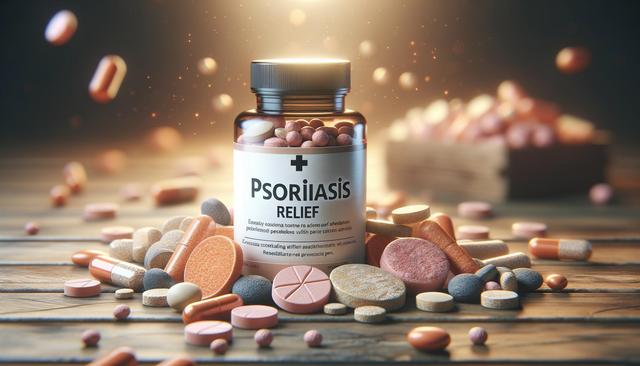The Role of Nutrition in Psoriasis Management
Psoriasis is a chronic autoimmune condition that affects the skin, leading to inflammation, redness, and scaling. While there is no cure, a number of treatment strategies aim to reduce flare-ups and improve quality of life. Among these, nutrition has gained increasing attention. Specifically, certain vitamins have been studied for their potential role in supporting skin health and modulating immune response, both of which are critical in managing psoriasis. Incorporating the right vitamins into your daily regimen can complement medical treatments and may offer additional relief.
Consuming a balanced diet rich in anti-inflammatory foods is often recommended for individuals with psoriasis. Whole foods like fruits, vegetables, lean proteins, and healthy fats offer natural sources of vitamins and antioxidants that support skin repair and immune function. When diet alone doesn’t meet nutritional needs, supplements may be considered under professional guidance.
Vitamin D: A Key Player in Skin Health
Vitamin D is one of the most commonly discussed vitamins in relation to psoriasis. Known for its role in calcium absorption and bone health, vitamin D also contributes to immune regulation. Studies have indicated that individuals with psoriasis often have lower levels of vitamin D, and supplementation may help reduce the severity of lesions and improve skin appearance.
Vitamin D may be obtained through:
- Sunlight exposure (with proper skin protection)
- Dietary sources such as fatty fish, egg yolks, and fortified foods
- Vitamin D supplements, if advised by a healthcare provider
Topical forms of vitamin D, such as creams containing calcitriol or calcipotriol, are also commonly prescribed to help slow down the overproduction of skin cells associated with psoriasis.
Vitamin B12 and Its Anti-Inflammatory Benefits
Vitamin B12 plays an essential role in nerve function, red blood cell production, and DNA synthesis. In psoriasis, it is thought to contribute to symptom relief due to its anti-inflammatory properties. Some clinical reports have shown improvement in psoriasis symptoms with topical application of vitamin B12 creams or through supplementation.
Sources of vitamin B12 include:
- Animal-based foods such as meat, dairy, and eggs
- Fortified plant-based products for individuals on vegetarian or vegan diets
- Oral supplements or injections for those with absorption issues
Although more research is needed, the inclusion of B12 in a supportive care plan may offer additional benefits for those managing skin inflammation.
Antioxidant Vitamins: A, C, and E
Vitamins A, C, and E are known for their antioxidant properties, which help neutralize free radicals and reduce oxidative stress. These processes are particularly relevant in psoriasis, where inflammation and cellular damage often play a central role. Each of these vitamins supports skin health in unique ways:
- Vitamin A: Essential for skin cell production and repair. Found in foods like sweet potatoes, carrots, and leafy greens.
- Vitamin C: Supports collagen synthesis and immune defense. Present in citrus fruits, berries, and bell peppers.
- Vitamin E: Helps maintain skin moisture and reduces inflammation. Found in nuts, seeds, and vegetable oils.
While supplementing with these vitamins can be helpful, it’s important to avoid excessive doses, especially with fat-soluble vitamins A and E, which can accumulate in the body and lead to toxicity.
Choosing the Right Vitamin Supplementation Strategy
If you are considering vitamins for psoriasis relief, it’s crucial to approach supplementation thoughtfully. Not all vitamins are suitable for everyone, and factors such as existing medical conditions, medications, and nutritional deficiencies should be considered. Consulting with a healthcare provider or a registered dietitian can help determine which vitamins, if any, are appropriate for your specific situation.
Here are a few tips when considering vitamin supplementation:
- Opt for high-quality supplements from reputable sources
- Check for third-party testing to ensure purity and dosage accuracy
- Start with lower doses and monitor for any changes in symptoms
- Track your intake to avoid over-supplementation
Incorporating vitamins into a broader psoriasis management plan can offer additional support, but they should not replace prescribed treatments or medical advice. A balanced approach that includes proper nutrition, skincare, and medical oversight is key to managing this condition effectively.


